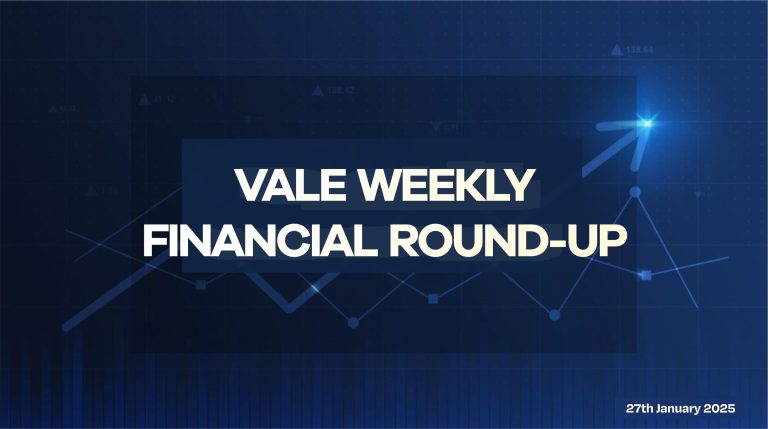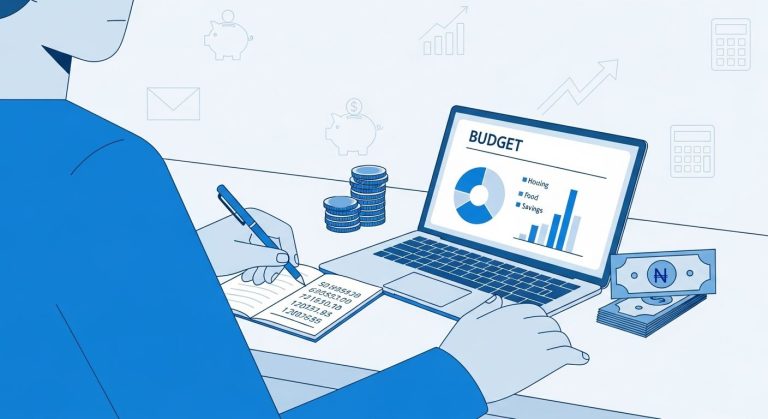When Giving Becomes a Burden: Navigating Black Tax with Boundaries
In many homes, success is shared. It belongs to the whole family, not just the person who earned it. That is why the moment you start earning more, it doesn’t feel like your progress alone: it’s everyone’s progress. And that is beautiful; you’re glad to be in a position to give back. But sometimes it is not always easy to balance your own needs with everyone else’s.
This is often what we call Black Tax. To some, its generosity, a choice to help because you can. To others, it feels like obligation, something you owe for the sacrifices that got you there. And sometimes, it is both. It means different things to different people, but one thing is constant: it can shape how you spend, save, and even dream.
To be fair, many of us give willingly. We understand the sacrifices that got us here. Giving isn’t the problem. It’s the constant giving. The never-ending cycle that often begins to feel more like pressure. You start to notice it when you can’t make plans for yourself without calculating who else you’ll have to accommodate. When you feel guilty for wanting to enjoy the money you’ve worked hard for. That’s when giving becomes a burden. When it comes at the cost of your own goals, peace, or stability.
The hardest part is setting boundaries in a culture where boundaries are often misunderstood. Where saying “no” can be twisted into pride. Where protecting your peace is seen as forgetting your roots. But the truth is, self-preservation is not selfishness. Wanting to rest is not wickedness. And trying to build something for yourself is not betrayal.
So, what do you do when you want to help but you’re also tired? When you feel obligated but also overwhelmed? You start by being honest. Honest with yourself, and with those you care about. Sometimes people don’t realize the pressure they’re putting on you until you say something. Other times, they know but hearing you articulate it helps shift the dynamic.
You might also try structure. Set a specific amount or percentage aside each month for family support, so you’re not always dipping into your savings. It gives you clarity and gives them consistency on both the amount they receive and what time of the month they get it.
Then there is the part we all struggle with: saying “not this time.” It’s okay to say you can’t help this month. That doesn’t make you ungrateful. It means you are human, and humans have limits.
Most importantly, remind yourself that you are not an ATM. You are not the emergency fund for an entire family tree. You are allowed to dream. To rest. To keep some things for yourself. Boundaries don’t mean you don’t care; they mean you care enough to give what you can without losing yourself in the process.
You can be generous without losing balance. Supportive without forgetting yourself. You can show up for others without abandoning you. And maybe that’s the balance we’re all trying to find.
NOW TO THE NEWS
Naira Ends Week Slightly Weaker, FX Reserves Climb to $40.7 Billion
The naira ended the week slightly weaker in the parallel market, trading at N1,560/$1 on Friday, down from N1,555/$1 on Thursday and Wednesday. Earlier in the week, it was N1,565/$1 on Monday and N1,560/$1 on Tuesday, but overall, it performed better week-on-week, having closed last week at N1,570/$1. In the official market, the naira recorded marginal gains during the week, moving from N1,538.45/$1 on Monday to N1,534/$1 on Thursday.
On a week-on-week basis, it posted a minor gain, closing at N1,534/$1 compared to last week’s N1,534.9/$1, reflecting its longest period of stability this year, trading within a narrow range of N1,520–N1,537/$1 between June and August 2025, following fluctuations earlier in the year.
Meanwhile, Nigeria’s foreign exchange reserves rose to $40.7 billion from $40.65 billion, supported by higher inflows from oil exports, diaspora remittances, and renewed investor confidence following recent monetary and fiscal reforms.
Nigeria’s World Bank IDA Debt Rises to $18.2bn
Nigeria has maintained its position as the third-largest borrower from the World Bank’s International Development Association (IDA), with outstanding obligations of $18.2 billion as of June 30, 2025, up from $16.5 billion a year earlier. The country first climbed to third place in 2024, highlighting its reliance on concessional loans to fund key development projects in infrastructure, energy, education, healthcare, and poverty reduction.
Under President Bola Tinubu’s administration, Nigeria received $3.9 billion in IDA loans over the past two years, alongside additional financing from the World Bank’s International Bank for Reconstruction and Development (IBRD). As of March 2025, the World Bank Group accounts for $18.23 billion roughly 39.7% of Nigeria’s total external debt and 81.2% of its multilateral debt underscoring the central role of concessional financing in the country’s debt portfolio.
Economists caution that while concessional loans are favorable, rising foreign debt must be managed carefully to ensure sustainability. Without adequate revenue to meet repayment schedules, Nigeria risks borrowing to service existing loans, which could strain reserves and weaken the naira. Experts emphasize that funds should be invested in projects that boost the country’s capacity to generate revenue, with disciplined borrowing key to long-term fiscal stability.
Naira Holds N2,205/£ Against British Pound
The naira settled at N2,205/£ against the British pound on the informal market. The unofficial FX band has remained between N2,000 and N2,400/£, supported by strong offshore demand for sterling amid global volatility. Traders say the naira’s movement largely depends on foreign capital sentiment.
On the official market, the naira closed at N2,110/£, down from N2,095/£ and N2,090/£ in previous sessions, with intraday fluctuations recorded between N1,529.75/$1 and N1,535/$1. Price action showed a positive breakout for the GBP/NGN pair following the Bank of England’s fifth rate cut this year. Experts note that the naira’s relative stability in August reflects growing market confidence, emphasizing the need for sustained investment confidence and steady policy support.
The Central Bank of Nigeria reported that the UK accounts for 50% of remittances by Nigerians in the diaspora in 2024. The CBN also highlighted the naira’s strong security features and urged citizens to maintain its integrity in transactions, reaffirming the currency’s quality to enhance financial awareness and strengthen confidence in Nigerian banknotes.
Banking Sector Sees Highest Inflows Amid CBN Reforms
The Nigerian banking sector experienced its largest capital inflow in over a decade in the first quarter of 2025, attracting $3.1 billion, which accounted for 55.4 percent of the total capital inflows into the economy. This represents a 51 percent increase from $2.06 billion in 2024 and is more than 27 times the level recorded ten years ago, signaling renewed investor confidence in the country’s financial assets. The sector is also undergoing a recapitalization process, further strengthening its stability and appeal to investors.
Analysts attributed the surge in investments to reforms implemented by the Central Bank of Nigeria (CBN) under Governor Olayemi Cardoso, who took office in October 2023. Key measures, including currency unification, clearing a $7 billion forex backlog, and reducing interventions in the domestic forex market, have improved Nigeria’s investment outlook. These steps also helped lower the country’s sovereign risk spread to its lowest level since January 2020, attracting foreign capital and boosting confidence in Nigeria’s economic sustainability.
Overall, Nigeria’s total capital inflows rose to $5.6 billion in Q1 2025, up 67.12 percent from $3.4 billion in the same period last year. Portfolio investment dominated with $5.2 billion (92.25 percent), primarily in money market instruments ($4.2 billion), bonds ($877.4 million), and equities ($117.3 million). Foreign Direct Investment (FDI) was the smallest component, contributing $126.29 million, or just 2.24 percent of total inflows, reflecting the strong interest of investors in short-term, high-liquidity assets amid ongoing economic reforms.


